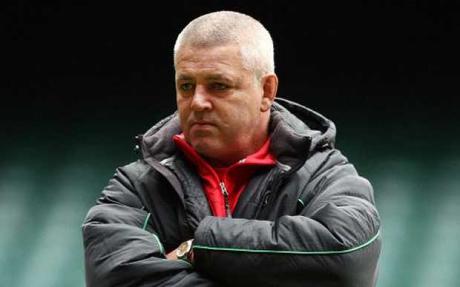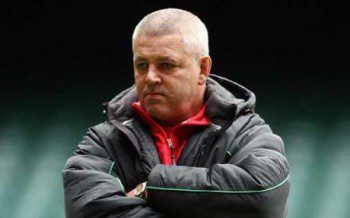

PARIS, FRANCE – This month we’ve been checking in on the state of the Northern Hemisphere’s rugby unions – a year ahead of the World Cup. We’re posting every Tuesday, so check back and see how your favorite nation stacks up. To see the previous reviews click the following: Italy, Scotland, and France. We’re profiling teams in reverse order of their finish in last year’s Six Nations tournament, so third place Wales headlines this week.
Domestic Game
An absolute nightmare. A post in The Guardian this weekend revealed that Welsh clubs may refuse to release their international players for a pre-World Cup training camp, in yet another effort to spite the Welsh Rugby Union. All national unions have some degree of conflict with their representative clubs, but the civil war that has erupted in Wales is unprecedented in international sport. In essence, the Welsh regions do not make nearly enough money to be self-sufficient, but refuse to allow the WRU to sign players to central contracts. Sam Warburton defied this nonsensical mandate, and as a result, he finds himself without a club through the preseason. At this point, the well is so poisoned that talks between the two sides invariably dissolve into name-calling. A situation that looked dire a year ago looks irredeemable now. It is not an exaggeration to say that Welsh rugby is looking its own death in the face. As salaries continue to rise (and they will continue to rise), Welsh stars will be left with no alternative but to seek greener pastures in France and England. The youth game in Wales is already suffering mightily, at a time when their international team is enjoying its greatest success in decades.
Nigel Davies, an integral member of Wales’ management setup during the 2007 World Cup, proffered a harrowingly accurate analysis when he claimed last week, “We have two systems in place … Someone needs to knock heads together as it is already affecting Gatland with so many of his star players based outside Wales…This has gone on for so long that I do not know if it will work itself out, but as it stands the Welsh regions will never be a force in Europe again.” It is difficult to think of any other major rugby playing nation reaching such a point, but Wales need to stare into the abyss and come up with a solution.

Coaching Situation
While the bottom three nations have suffered from varying degrees of managerial incompetence, it is difficult to find critics of Warren Gatland. Though there were accusations from some parties after the 2014 Six Nations that Wales’ tactics have become too predictable, there is also a general understanding that this generation of Welsh stars have been playing without pause for almost three years. This summer has finally offered a respite, and hopefully stars such as Leigh Halfpenny will be allowed to recuperate, giving Wales the best possible chance at the 2015 World Cup. Other nations have caught up to Wales in terms of their physical training, which was revolutionary in 2011. Realistically, any international manager that stays in charge as long as Gatland has will suffer from some systemic issues. It becomes difficult to motivate players when they have seen all your tricks for the past half-decade, while the world also has plenty of video and time to figure out favored tactics. Gatland has always liked big, straight runners. In order to be successful in 2015, he will have to come up with a fresh variation, or Wales will fall in a brutal group that includes England and Australia.
National Team
On paper, Wales certainly have the talent to compete with Australia and England. However, they have formed a mental block around the former and lost significant ground to the latter in the past three years. Fly half and scrum half have now become consistent problem positions, with Mike Phillips no longer performing at an elite level. Wales’ props are also noticeably aging, though still capable of performing at a high level. The centers are probably set through at least another cycle, barring injury, with Jonathan Davies and Jamie Roberts proving to be exactly the kind of bulldozing backs that Gatland prefers. The Warburton fiasco is an entirely different matter which will be yet another landmine in Gatland’s way. At the moment, Wales continue to cause needless problems for themselves, potentially robbing their “golden generation” of the ultimate chance to prove itself in a World Cup.

Overall
The main story in Welsh rugby this year, as it was last year, will be the continued failure of the unions and regions to work together. The longer this fight drags on, the more damage it does, and there are no signs that it will abate in the near future. Damned with their difficult group, it is tough to see Wales successfully navigating past England at Twickenham, and Australia anywhere. They may be doomed to a knockout stage exit.

